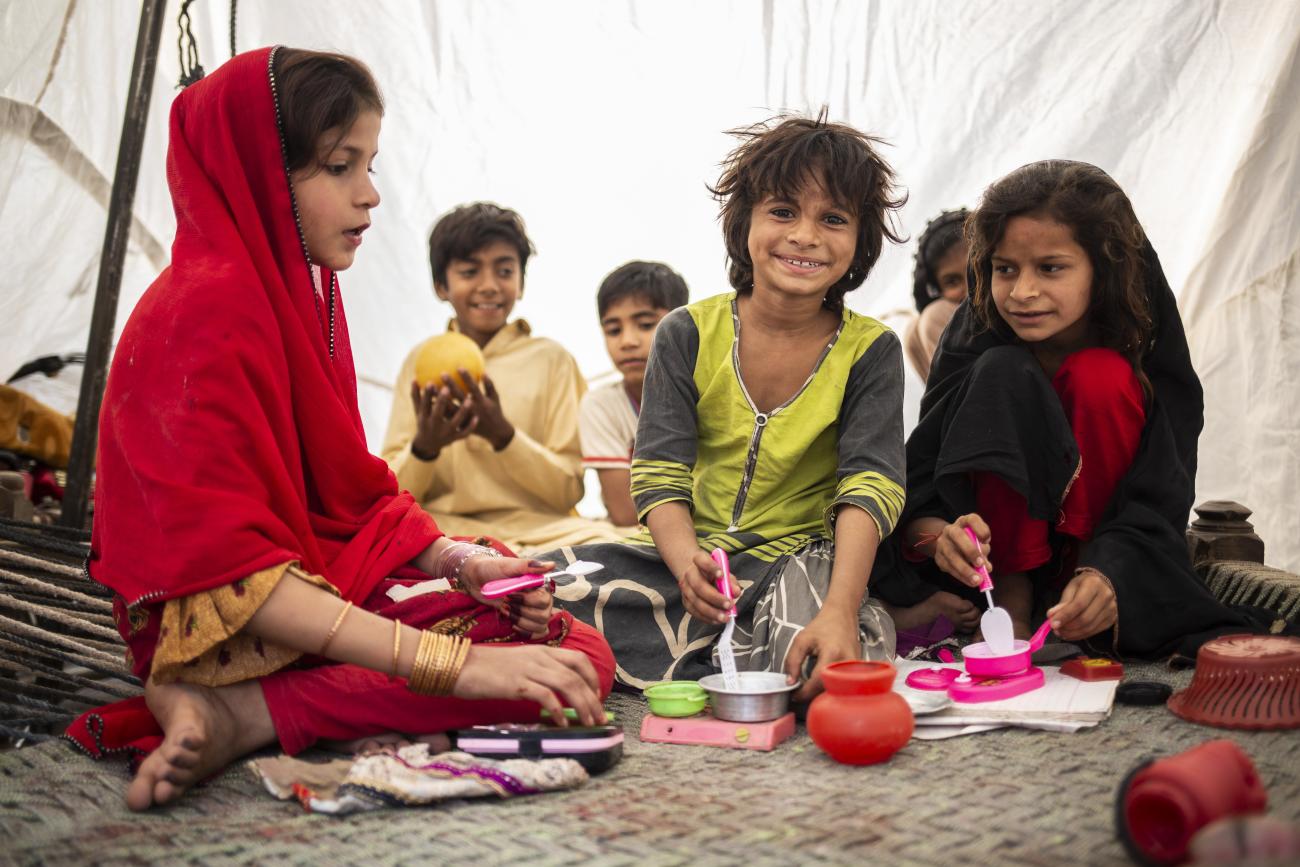Story
Pakistan case study: Coordinated and comprehensive response to the 2022 floods
11 May 2023

Caption: 10-year-old Areeba Tehmeez (left), 8-year-old Dua (centre) and 10-year-old Humaira (right) play in the tent their parents have setup next to the ruins of their home which was destroyed in the floods. They say they are very happy as today they moved back t
Photo: © @UNIC Pakistan/Saiyna Bashir
Latest news and updates
1 / 12













